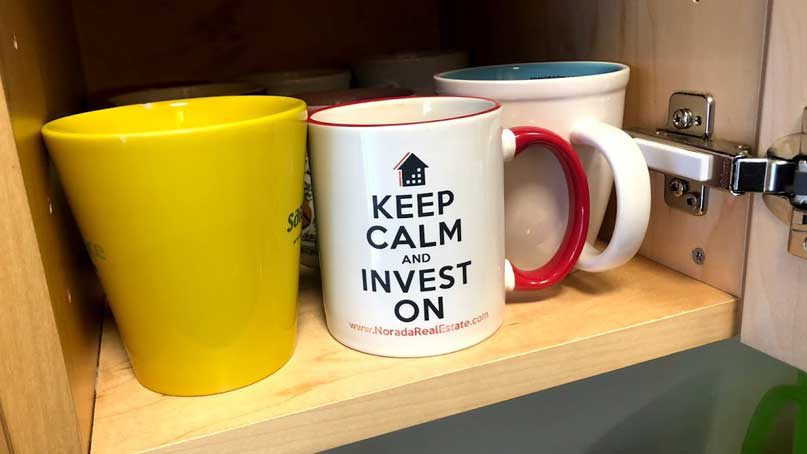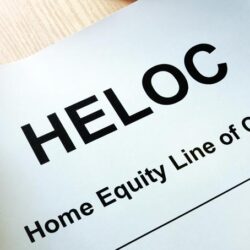We don’t come from a real estate family – no architects, contractors, interior designers, or even investors on either side. My mom liked looking at listings, so I do recall visiting some places when I was younger. I was always interested but didn’t do anything with my interest for 30 years. After that slow start, however, we made up for lost time, netting 15 properties in 15 years.
I had been reading business and personal finance books and news since college, but didn’t focus on real estate topics. Once we realized real estate could be the linchpin of our FIRE journey, I did start reading more real estate news and resources.
Here are my favorites.
Thought Leaders
Financial Mentor – I mention Financial Mentor in my favorite FIRE resources, and he makes the cut on the real estate list too, even though he sold his holdings right before the 2007 crash and is actually focused on other investments now. But smart real estate investing is a subset of smart investing, and no one lays out investing principles more clearly and prudently than Financial Mentor. This post on the New Rules For Real Estate Investing is a perfect example of why he’s a favorite resource and a must-read for real estate investors.
Gary Keller – Keller is the founder of Keller Williams, the largest real estate agency in the world (by agent count). He’s also the author of two of my favorite professional development books. The Million Dollar Real Estate Investor is a favorite among real estate investors, for good reason (I’ve read it three times). The simple paradigm of Think a million, Buy a million, Own a million and then Earn a million is still a memorable shortcut I use to check my own financial plans. However, my favorite Keller book is The ONE Thing: The Surprisingly Simple Truth Behind Extraordinary Results. I still use the book’s central theme (the ONE thing is actually a question) as a planning tool: What is the ONE thing you can do that would make everything else easier or unnecessary?
Daniel Amerman – Be forewarned that Amerman’s writing is dense. But that’s part of the allure since he writes about the relationships between the US debt level, interest rates, the money supply, inflation, government programs and more. Amerman covers economic topics overall, not real estate specifically, but he’s firmly in the real estate camp and it comes up a lot in his theories. Before I make any decisions relating to prepaying our mortgages, I revisit Amerman’s diatribes (he’s very much a proponent of “get a long, fixed rate mortgage and never pay it down prematurely). He makes a very compelling argument on this, and it helps counteract my tendency to overreact to debt.
Websites
Bigger Pockets – Bigger Pockets is how we discovered turnkey investing, for better or worse, as well as a host of other resources, including our current umbrella liability carrier, my excellent property managers in Asheville, NC (Bayshore Management) and our insurance carriers for our Indianapolis properties. The most helpful part for us has been the community of dedicated real estate investors, who are very forthcoming and generous with ideas and referrals. When we’ve been unsure on how to proceed on a large maintenance project or stuck on finding the right vendor, we’ve consulted the community. The site also has webinars, podcasts, blogs and other information resources, many of which are very thorough.
Zillow – I have all of our properties saved on Zillow so I can see their Zestimates (Zillow’s market value estimate of a property) over time. I’m not 100% confident in the accuracy of the Zestimate – too low in some cases, too high in others – but it’s helpful to get a sense of our equity build-up over time. Potential buyers also consult Zillow, so even if I don’t believe the Zestimate, it could influence others. Zillow also owns Streeteasy, which covers New York City real estate in great detail and is one of my favorite guilty pleasures.
Trulia – Trulia is similar to Zillow in that it scrapes MLS listings and closing records, in order to provide information on virtually any property in the US. In their property detail, Trulia offers a handy crime heat map, so you can gauge neighborhood safety by easy-to-understand color codes, and great mapping of schools and school districts compared to property location. This is a first stop when we hear about a potential off-market listing.
Podcasts

Passive Real Estate Investing – This podcast is hosted by Marco Santarelli of Norada Real Estate Investments, which is actually a turnkey investment provider. We didn’t invest with Norada, though we looked at a couple of deals they offered (the deals just didn’t fit our criteria at the time). But the podcast is a favorite, and I learned about many helpful resources, including Daniel Amerman, from previous episodes. I also got the Keep Calm and Invest On mug for leaving a podcast review, and it’s now my go-to for hot drinks!
Get Paid For Your Pad – Scott discovered this AirBNB information podcast as he oversees all of our vacation rental activity. It’s not in the substantive, rigorous style of Daniel Amerman or Financial Mentor, but It’s entertaining and does provide good updates and interesting guest interviews with AirBNB hosts and service providers.
Getting Started And Overcoming Analysis Paralysis
A lot of these resources reference other resources so you can start with these and end up reading many more sources.
This is a good thing. Real estate is an illiquid investment because there are high transaction costs, and there isn’t always an available market (just ask anyone who tried to sell in the years post-2007). If you go overboard on the due diligence, that’s not necessarily a bad thing.
Of course, some people will caution that if you do too much research, you end up with analysis paralysis and don’t do anything. We overcame that in 2005 with our first rental purchase by buying something cheap enough that we could carry the monthly expenses even if it stayed vacant indefinitely.
We also rationalized that if we had to sell at a loss it would be like paying graduate school tuition at the School For Hard Knocks. But that was our particular situation – you have to run your own numbers and choose your own investment philosophy.
======
What are your go to resources?


 We are Scott and Caroline, 50-somethings who spent the first 20+ years of our adult lives in New York City, working traditional careers and raising 2 kids. We left full-time work in our mid-40’s for location-independent, part-time consulting projects and real estate investing, in order to create a more flexible and travel-centric lifestyle.
We are Scott and Caroline, 50-somethings who spent the first 20+ years of our adult lives in New York City, working traditional careers and raising 2 kids. We left full-time work in our mid-40’s for location-independent, part-time consulting projects and real estate investing, in order to create a more flexible and travel-centric lifestyle.  Financial independence and early retirement is not something we originally focused on, but over time realized it was possible. Our free report,
Financial independence and early retirement is not something we originally focused on, but over time realized it was possible. Our free report, 







